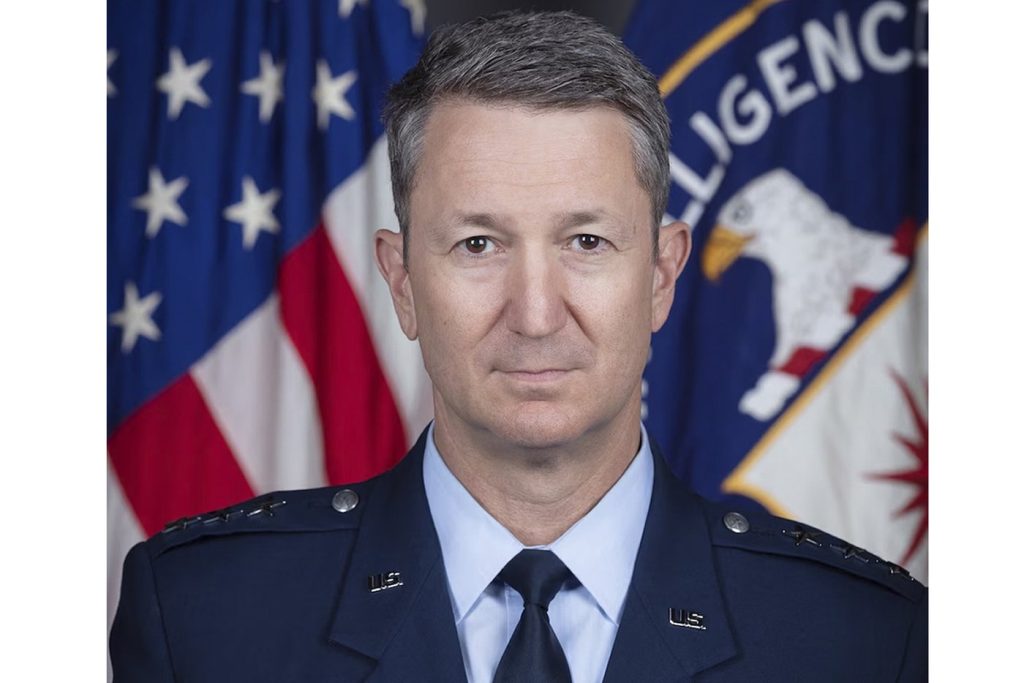WASHINGTON (AP) – President Donald Trump's nominee for the next chairman of the Joint Chiefs of Staff, retired Air Force Lt. Gen. Dan "Razin" Caine, is set to undergo questioning by senators during his confirmation hearing scheduled for Tuesday. Caine, a distinguished F-16 combat pilot with extensive leadership experiences in various special operations commands and some of the Pentagon's most classified programs, faces scrutiny regarding his qualifications for the role of the top U.S. military officer.
Despite his impressive record, Caine does not meet the established requirements for the position of Joint Chiefs chairman as outlined in a 1986 law. These requirements include holding the position of a combatant commander or service chief. Nonetheless, the law permits the president to waive these prerequisites, a potential that Trump may consider in Caine's nomination.
Caine was nominated by Trump in February, just one day after the president dismissed former chairman Gen. CQ Brown Jr. This decision was part of a broader purge of general officers perceived by Trump and Defense Secretary Pete Hegseth as supporters of diversity, equity, and inclusion initiatives within the military. The timing of Caine's nomination has raised eyebrows and could lead to challenges from Democratic senators, who may question whether Caine can uphold independence from Trump during his service.
The interactions between Trump and Caine reportedly began in 2018 when the president visited troops in Iraq during his first term. Trump claimed that Caine impressed him during this visit, even alleging that Caine donned a red "Make America Great Again" hat, a claim Caine's associates contest. With Trump’s nomination, Caine is likely to face concerns about his potential alignment with the administration's political agenda, especially in light of the fraught relationship between Trump and the previous chairman, Gen. Mark Milley, who actively resisted efforts to politicize the military.
Caine’s previous roles within the military include serving as the commander of a joint special operations task force in Iraq in 2008 and as assistant commanding general of joint special operations command at Fort Bragg. From 2018 to 2019, he also held the position of deputy commanding general for the special operations joint task force during Operation Inherent Resolve, which focused on countering the Islamic State group in Iraq and Syria. His experience further extends to his time as associate director for military affairs at the CIA from 2021 until his retirement in December 2022.
In preparation for the confirmation process, Caine has been engaging with both Democratic and Republican lawmakers, indicating his efforts to foster bipartisan relationships. This stands in contrast to Hegseth’s tenure, during which he faced significant challenges in appealing to members of the Democratic Party. Caine's retirement in December means that he will need to be sworn back into active duty following confirmation, after which he is expected to be promoted to the rank of four-star general.
During his career, Caine has amassed an impressive flying record, logging over 2,800 hours in the F-16. His accolades include the Distinguished Flying Cross and the Bronze Star Medal with bronze oak leaf cluster, among other distinguished awards. It is noteworthy that Caine transitioned into the National Guard in 2009, subsequently transitioning to the private sector where he worked as an adviser for an investment firm affiliated with Jared Kushner, Trump's son-in-law.
As discussions surrounding Caine's nomination unfold, senators on the Armed Services Committee are expected to evaluate not only his qualifications but also any implications of his previous ties to the Trump administration. As Caine prepares for critical questioning, his professional demeanor and experience will be on full display, as he seeks to assume the responsibilities of the military's highest uniformed office.










